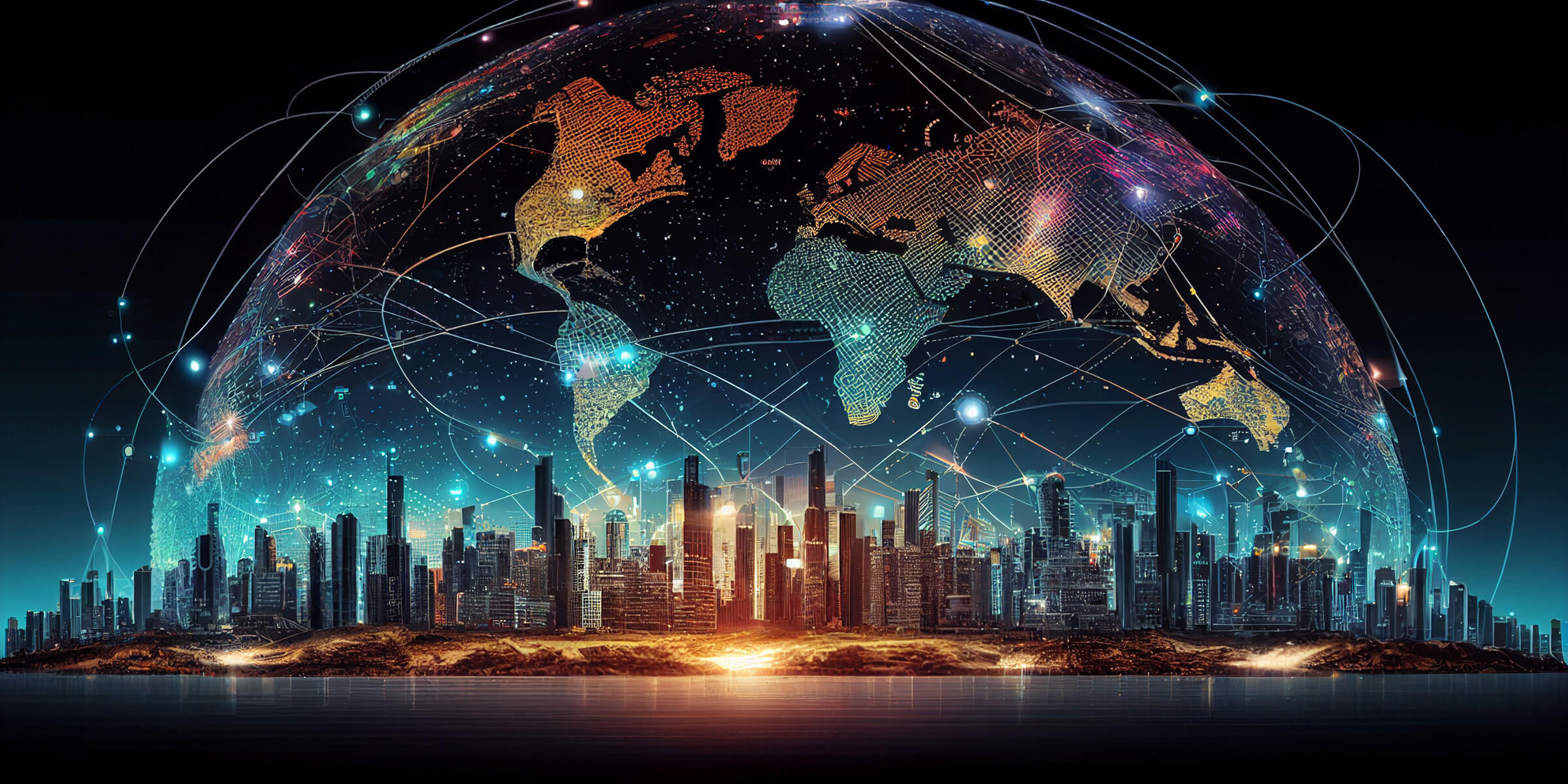
Introduction to Cyberspace
Cyberspace refers to the virtual environment of computer networks, digital communications, and online activities where people interact with digital devices, systems, and networks. It includes everything from the internet, virtual worlds, and the services that exist on them, to the hardware and software that enables data storage, transfer, and interaction.
1. Defining Cyberspace
Cyberspace is often described as a "virtual reality" made up of interconnected computer systems, digital platforms, and networks. It encompasses the following components:
- The Internet: The global network of computers and servers that communicate using standardized protocols (such as TCP/IP).
- Networks: Systems of computers, data transmission systems, and communication infrastructure that enable sharing of data.
- Cloud Computing: Remote servers providing services such as data storage, processing, and software applications over the internet.
- Digital Devices: Smartphones, tablets, laptops, desktops, IoT (Internet of Things) devices, etc.
- Cyber-Physical Systems: Systems that blend both physical and cyber components, such as autonomous vehicles, medical devices, and industrial control systems.
2. Key Aspects of Cyberspace
-
Data Exchange and Communication: Cyberspace is primarily about the flow of information and communication between systems. The data travels through various networks, from local area networks (LANs) to wide area networks (WANs), to the global internet.
-
Virtual Worlds and Environments: These are digital spaces where users can interact with each other, avatars, and objects. Examples include online games, social media platforms, and virtual reality spaces.
-
Security and Privacy: Given the interconnectedness, cybersecurity is crucial for protecting personal data, privacy, and systems from malicious attacks such as hacking, identity theft, malware, and phishing. Privacy concerns also involve the management of how personal data is shared, used, and stored.
3. The Importance of Cyberspace
-
Global Connectivity: The internet is a tool for worldwide communication, knowledge sharing, and collaboration. From social networking to international commerce, it’s a vital part of everyday life.
-
Business and Economy: E-commerce, digital banking, cloud-based services, and digital marketing all thrive in cyberspace, driving economic growth and innovation. Cyberspace allows businesses to expand globally while reducing operational costs.
-
Social Interaction: Social media platforms, online communities, forums, and virtual worlds allow individuals to interact with each other, regardless of geographical barriers. These spaces have transformed how people form relationships, work, and share ideas.
-
Knowledge Sharing and Learning: Online education, forums, and content platforms provide easy access to information and learning opportunities, democratizing knowledge.
4. Key Technologies of Cyberspace
-
Internet Protocols (IP): The internet operates on standard communication protocols like TCP/IP (Transmission Control Protocol/Internet Protocol) that manage how data is transmitted across networks.
-
Web Technologies: HTML, CSS, JavaScript, and other programming languages facilitate the creation and operation of websites and web applications.
-
Blockchain: A decentralized digital ledger technology often associated with cryptocurrencies, but also useful in secure transactions, contracts, and supply chain management in cyberspace.
-
Artificial Intelligence and Machine Learning: AI technologies are being integrated into cyberspace applications, enhancing automation, improving cybersecurity, and enabling new user experiences.
5. Risks and Threats in Cyberspace
-
Cybercrime: Activities like hacking, identity theft, data breaches, and fraud that occur within the digital world.
-
Malware: Malicious software such as viruses, worms, and ransomware that damage systems, steal data, or disrupt operations.
-
Cyber Warfare: Nation-states and other actors may engage in attacks against the infrastructure of other nations or groups, using the internet as a medium for espionage, sabotage, or propaganda.
-
Privacy Concerns: With vast amounts of personal data being shared and stored in cyberspace, individuals face potential breaches of privacy and misuse of their information by companies, hackers, or governments.
6. Ethical and Legal Issues in Cyberspace
-
Intellectual Property: The digital nature of cyberspace complicates copyright enforcement, leading to piracy and unauthorized distribution of content.
-
Freedom of Speech vs. Censorship: The open nature of the internet raises issues about the balance between allowing free expression and preventing harmful content such as hate speech or misinformation.
-
Cybersecurity Laws: Governments and international organizations are continuously working on regulations to protect users, enforce cybercrime laws, and ensure the safety and privacy of individuals in cyberspace.
7. Governance and Policy in Cyberspace
Cyberspace governance includes the creation of policies and frameworks to manage and regulate the use of the internet and related technologies. Several entities are involved:
-
International Organizations: Bodies like the United Nations (UN), International Telecommunication Union (ITU), and World Wide Web Consortium (W3C) play roles in developing policies, standards, and regulations for global internet governance.
-
National Governments: Governments create laws and regulations regarding data protection, privacy, cybercrime, and internet freedom within their respective countries.
-
Private Companies: Technology companies, such as Google, Microsoft, Facebook, and others, often set their own terms of service, manage user data, and influence the structure of cyberspace through innovations in digital services and applications.
8. Future of Cyberspace
-
Internet of Things (IoT): A growing network of interconnected devices that communicate with each other, extending the reach of cyberspace into everyday objects like refrigerators, cars, and medical devices.
-
5G and Beyond: The rollout of faster, more reliable internet (5G) will dramatically enhance the capacity of cyberspace to support data-heavy applications like streaming, autonomous driving, and smart cities.
-
Quantum Computing: Once fully realized, quantum computing could revolutionize cyberspace by enabling incredibly fast processing speeds and opening up new possibilities for encryption, AI, and scientific research.
-
Digital Sovereignty: As nations become more aware of the importance of controlling their data, the future may see a shift toward national and regional digital infrastructures, with countries aiming to control their own cyberspace.
9. Conclusion
Cyberspace plays an integral role in the modern world, influencing almost every facet of life from communication and business to government and social interaction. While it brings significant benefits, it also introduces complex challenges, such as security, privacy, and ethical considerations. As technology evolves, cyberspace will continue to grow, making it essential to adapt to emerging trends, protect privacy, and secure the digital world for future generations.
